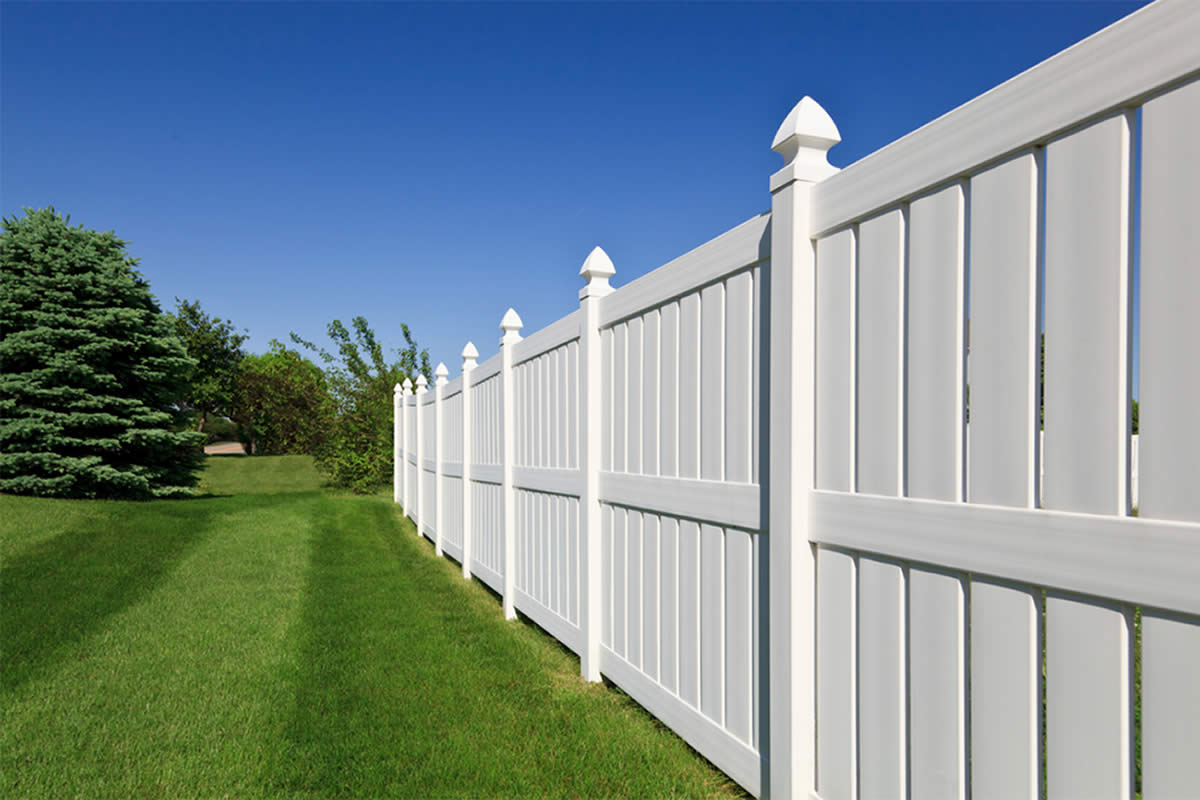Caring for Your Vinyl Fence During the Winter

Vinyl fencing has the strength and reliability to handle harsh weather conditions and is much more cost-effective than metal fencing options. If you're not sure what you're doing, maintaining your vinyl fence through the winter can be tricky. Vinyl fence maintenance is necessary year-round. Regularly checking for fence problems and issues to ensure that your fencing is always prepared for winter is vital. Minor problems can become more significant when they are not addressed immediately, so staying on top of any issues is the best way to ensure your fence has the longest possible life. Our fence contractors in Sanford offer the following information about caring for your vinyl fence before, during, and after the winter months.
Snow removal
Heavy snow can apply extra pressure to your fence. Be sure to gently brush any snow off your fence daily so that its weight does not build up and cause damage. It also helps to ensure that moisture doesn't cause discoloration and other damages by sitting on your vinyl for a long time. If possible, blow snow away from your vinyl fencing surface and remove any snow drifts from the area of your fencing to allow proper drying. Just like snow, debris left on your vinyl fence can cause damage.
In addition, built-up debris around your fence surface applies pressure to your vinyl fence that can cause damages like warping. Be sure to keep the area around your fencing free of debris and as clear as possible to maintain the integrity of your vinyl fence. Keeping the base of your border free from debris also makes it easier to deal with built-up snow. Snow shoveling is easier when it's not stacked up on a pile of branches or leaves.
Keep limbs trimmed
Limb damage can be dangerous to your vinyl fence. Snow and ice building up on tree limbs can cause them to break and damage your fence as they fall on it. Cutting back limbs that may cause a threat to your fence before winter is in for full force is a safe bet to avoid costly damages.
Address mold and dirt quickly.
Mold and dirt can quickly build up on your fence during the winter when you are less likely to be in your yard and pay attention to your fence's surface. Dirt and mold can be easily removed from vinyl fencing when you notice it early on, but once the stain is set in, removal can be highly frustrating. Preparing your vinyl fencing for winter requires careful examination during the fall when you can quickly go outside and clean away any dirt or mold off of its surface. You should still regularly inspect your fence during the winter months for any signs of damage.
Complete repairs before winter sets in
Late fall is an excellent time for making vinyl fence repairs. First, inspect your fence for any missing or loose elements so that you can schedule fence repairs before the winter weather is upon you. The weight of snow and dropping temperatures will only cause damage to your fence to get worse. If you don't feel comfortable repairing your fence yourself, you should contact fence contractors in Sanford to ensure your fence is ready for winter and doesn't have any problems or issues that require repairs.
Remove marks and scuffs.
Late fall is also the perfect time to remove any lingering marks or scuffs from your fence's surface. Gentle soap and warm water are the ideal solutions for removing marks on your fence, so they do not have time to set into the surface over the winter months. If a spot is not easily removed with soap and warm water, you can use paint thinner. Avoid abrasive cleaners and bleach as they can severely damage your vinyl fencing.
Discourage mildew and mold.
If you want to keep mildew and mold from building up on your vinyl fence surface, you can use a solution of vinegar and water. Five parts white vinegar to one part water sprayed onto the surface of your fence will inhibit mildew and mold growth and ensure that your fence stays clean. The solution also helps to remove water and pollution stains from the surface of your fence.
Call us today for all of your fence installation and repair needs!